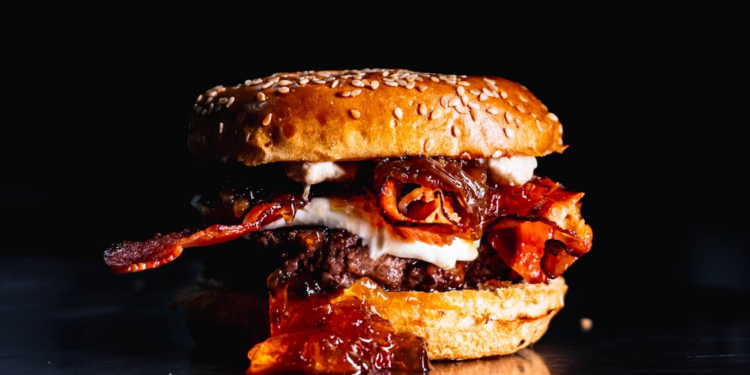In preparing for competitions or clearly taking the goal of changing physical shape, a person needs to set limits on food. Sharp restrictions cause dissatisfaction, reduce mood, cause irritation, and even affect sleep and general well-being. You can learn about all the effects of a strict diet on your body by ordering an expert paper from a research paper writing service where professional writers will help you choose the right approach to the topic or even help you write the whole paper from scratch.
To stay on a strict schedule of food and calorie restrictions, many people are looking for options to “cheat” on their diet without harming the overall process. In this search, people almost immediately find a concept like cheat meals. Simply put, this means periodically abandoning a strict diet in favor of culinary delights without harming progress. It sounds very tempting, but as with everything, there are nuances.
What Is a Cheat Meal, and How Does It Work?
The modern system of human nutrition is radically different from what it was even 100 years ago. On the store shelves, it is much easier to find a bar weighing 50 grams and calories at the level of a full meal than low-calorie and, at the same time, tasty and healthy products. In this system of eating, we often unknowingly overeat and exceed the calorie limit necessary for our bodies.
A cheat meal implies a planned deviation from the diet in favor of high-calorie foods that will bring us pleasure. The problem with trunks is that many people don’t understand it as a cheat meal but as a cheat day or even a cheat weekend. Conditionally speaking, five days a week, a person follows a strict diet, and on the weekend, allows oneself everything and even more because they know that from Monday, it is necessary to limit themselves again.
But in this case, a cheat meal does not work. In reality, a cheat meal is more of a psychological release and a way to stay on the diet schedule. And it works if it’s one meal, not a day or even a weekend. Many myths are worth dispelling because of the misunderstanding of cheat meals around this method.
Myths About a Cheat Meal
Cheat meal speeds up your metabolism and helps you lose weight.
It is scientifically proven and has been tested by numerous studies that only a reasonable calorie deficit and physical activity is a reliable and sustainable way to control excess weight. Chetmil on a strict diet can raise the metabolism by raising the body temperature during the digestion of calorie-dense food. However, this effect is very short-term and does not affect the overall picture in any way. Moreover, if you overdo the calories and your cheat meal includes a lot of salts and sugars, the weight loss process can stall for the next few days or even a strict diet.
A cheat meal is an “allowed break” that does not affect the weight loss process.
Another common myth is that a diet-depleted body will not store excess calories during a cheat meal. But you can’t fool physiology. Our liver can process a limited amount of sugar without starting to store the energy in a fat depot.
One meal a week outside of the diet won’t affect your overall results. But that doesn’t mean this cheat meal should include the daily calorie allowance or alcohol, for example. Studies show that regularly exceeding the calorie allowance can lead to weight gain, even if a person strictly follows the diet on other days.
Cheat meal allows you to eat anything you want without harming your health.
This is one of the biggest misconceptions about cheat meals. The quality of the food always matters. If you’ve been eating boiled fish and steamed chicken breast with vegetables all week and then decide to eat half a cake and a packet of chips during the cheat meal, your pancreas, liver, and stomach won’t thank you for it. Moreover, including exclusively fatty and salty foods in the cheat meal can harm the heart. If such foods are regularly present in the diet, it can lead to the development of metabolic disorders such as diabetes or hypertension.
The Real Benefits of a Cheat Meal
Incorporating a cheat meal into your diet should be approached responsibly, and it’s worth doing some preliminary research on the topic before you start “cheating” on your diet. You don’t click on purchase essays online on the first site you come across, but you do study the authors’ qualifications and the service rating beforehand. It is the same with cheat meals, as it can help with diet adherence if approached correctly.
For example, the main benefit of cheat meals is psychological relief. Diets, especially those that involve strict restrictions, can be psychologically debilitating. A cheat meal helps reduce the stress levels associated with dietary restrictions and allows you to enjoy your favorite foods without guilt.
In addition, planned deviation from the diet reduces the likelihood of sudden breakdowns and spontaneous attacks on the refrigerator. Knowing that you can afford your favorite meal in a few days helps you maintain self-discipline the rest of the time.
Cheat meals also help avoid social isolation when one feels “out of the loop” at holidays or parties. This allows one to participate in shared meals without feeling restricted by the strict confines of a diet.
Conclusion
To avoid any unexpected consequences and disappointments, it is worth remembering that cheat meals are part of the diet and part of the process, which means they should also be controlled and planned. Set yourself a day of the week on which you will allow yourself a free meal. It is best not to have it more than once every 7 days. Try to make the cheat meal, despite the conditional prohibition of foods not much beyond your usual portion, and most importantly, watch the quality of the food. You can please yourself not only with chips or doughnuts from the fryer.










